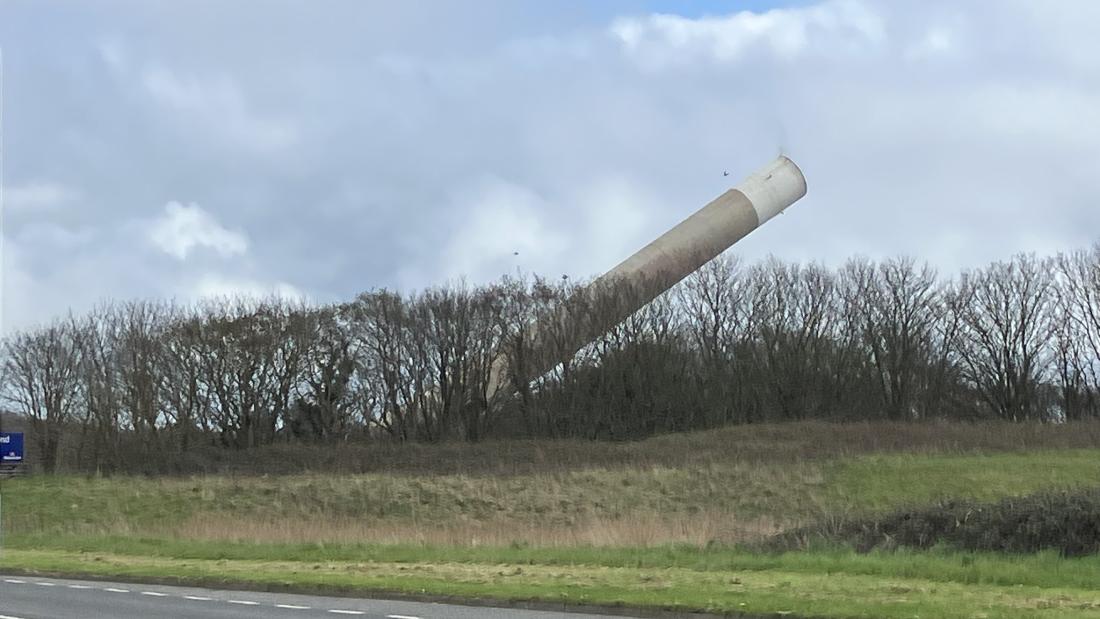The landscape of west Anglesey changed forever on Wednesday, 20th March. Since the early 1970s, Anglesey Aluminium’s chimney had towered over the town of Holyhead and the surrounding area, providing a useful reference point for many travellers. While the aluminium smelting plant closed in 2013, the chimney was only demolished this year as the new owners – Stena Line – cleared the land to make way for future investments as part of the Anglesey Freeport initiative.
Anglesey Aluminium was once the largest employer in North Wales, employing nearly 550 people at its peak. The production of aluminium was an international process with alumina and coke being shipped to Holyhead from Jamaica and Australia; the company had its own private jetty that transported these commodities from the harbour through private tunnels to the plant. The produced aluminium was then transported back through these tunnels to the harbour and shipped to the rest of the world. This truly was an international operation.
The demolition of the chimney marked the end of heavy industry on the island.
The chimney was a legacy of an era characterised by mass production, mass consumption, utility companies owned by the state, and a large proportion of the workforce working in telecoms, rail, coal, steel, and car production. Hundreds of thousands of people worked in the same industry, usually for the same employer.
But that era has ended, and we are now in the midst of a fourth industrial revolution that’s transforming in the way we live, work and relate to one another. The first industrial revolution used water and steam power to mechanize production; the second used electric power to create mass production; and the third used electronics and technology to automate production. The fourth industrial revolution is now building on the third, and is characterized by a fusion of technologies that is blurring the lines between the physical, digital, and biological fields.
The three previous industrial revolutions created new opportunities and also caused major changes in society. Today’s transformation is unique in terms of the great speed with which new ideas and technologies are spreading around the world. Every company across every industry now needs to reconsider their way of doing business to keep pace with rapidly changing technology and consumer expectations.
The new products and services of the fourth industrial revolution are making the science fiction of yesterday a reality today. The pace and scope of the fourth industrial revolution can already be seen across North Wales; for example, M-SParc at Gaerwen and OpTIC Centre at St. Asaph are home to several start-ups that are embracing groundbreaking scientific and technological advances to develop new products and services. We do not yet know how the transformation driven by this industrial revolution will unfold. Because of the profound uncertainty surrounding the development and adoption of emerging technologies, and their complexity and interconnectedness across sectors, governments, business, and academia have a responsibility to work together to better understand the emerging trends and ensure all communities benefit from this revolution.

An end of an era
This article by Dr Edward Thomas Jones was first published in the Daily Post Business Section recently.
